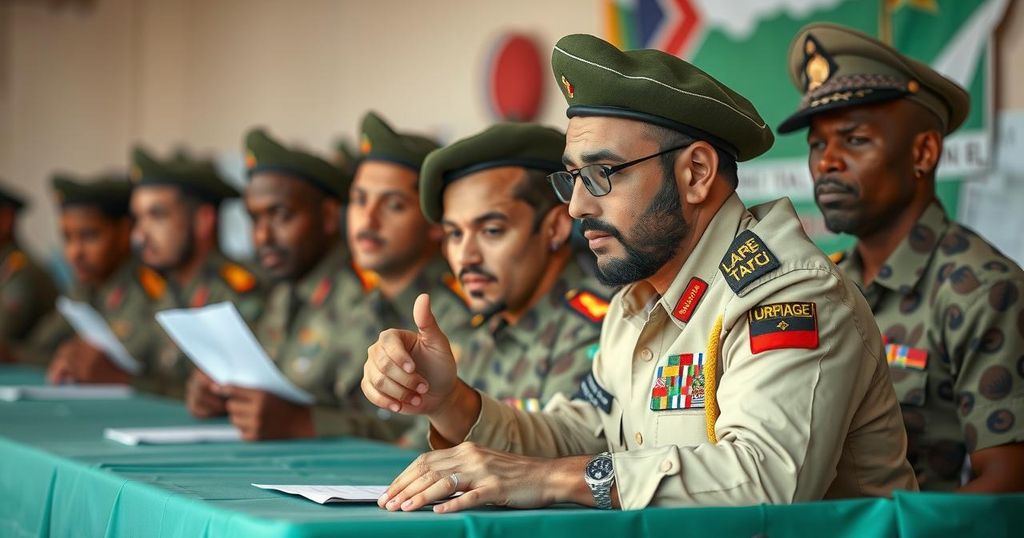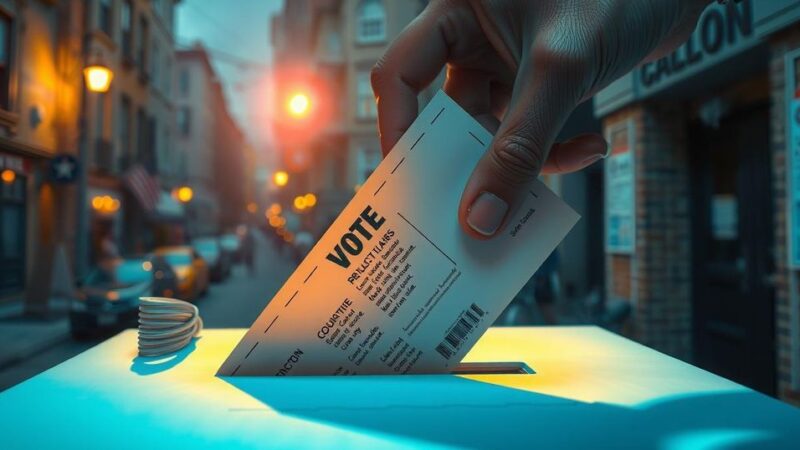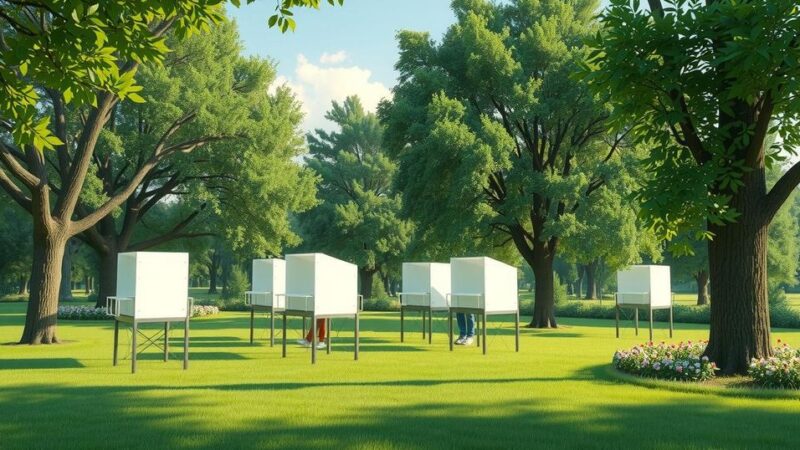Chad conducted a general election amid low turnout due to opposition-led boycotts, with figures indicating only 38 percent participation. Criticism of the electoral process arose, as many citizens expressed skepticism about its legitimacy. The elections are positioned as a key step towards democracy following years of military rule, although significant challenges persist, including potential electoral fraud and ongoing security threats from extremist groups.
Chad held a general election on Sunday, which the government has characterized as crucial for transitioning away from military rule that has persisted for three years. However, the anticipated voter turnout was reportedly low, primarily due to calls for a boycott from opposition parties who claimed that the electoral process had been predetermined. Initial reports from the elections management agency indicated a turnout of just 38 percent, with officials attributing this apathy to unfavorable weather.
Opposition leader Succes Masra of the Transformers party asserted that the majority of voters heeded their call to boycott, stating that “they have all stayed at home following our call, that is, the overwhelming majority.” This environment of limited participation benefits candidates aligned with President Mahamat Idriss Deby Itno, who assumed power following a military takeover in 2021 and faced accusations of electoral fraud during a subsequent presidential election in May. Deby encouraged citizens to vote, branding the day as “historic” while he shared his own voting experience via social media.
The election occurs against a backdrop of disillusionment among the populace, evidenced by comments from local residents who expressed skepticism regarding the efficacy of their votes. Comments from constituents included sentiments such as, “there’s no real voting in Chad” and calls for comprehensive changes to improve job opportunities and social justice. Polls were monitored by foreign observers, reflecting some level of concern regarding potential fraud and election integrity amidst reports of ballot irregularities.
Chad’s electoral process was also confronted with serious challenges such as ongoing jihadist violence in the region, a strained relationship with France, and allegations of interference in neighboring Sudan’s affairs. The government framed the election as a pivotal moment towards establishing a democratic framework, following the long reign of former President Idriss Déby. The election poses immediate implications for governance and social conditions, particularly for marginalized groups like nomads, who rely on politicians for improved living situations in the face of climate challenges.
Chad has been under military governance since 2021 after the death of long-serving leader Idriss Déby, which led to his son, Mahamat Idriss Deby Itno, taking power. The current election is seen as a crucial step toward restoring democracy amid significant political instability and civil unrest. Opposition parties have voiced strong discontent regarding the legitimacy of the electoral process, calling into question the sincerity of the ruling government’s promises for a transition to democracy. Historical adversities such as jihadist threats and social inequalities further complicate the political landscape in Chad, making these elections a notable event in the nation’s contemporary history.
In summary, the recent general election in Chad appears to reflect widespread voter disinterest fueled by opposition calls for boycott, as well as a pervasive skepticism regarding the legitimacy of the electoral process. The government contends that the elections symbolize a crucial stride towards democracy after years of military rule, yet significant challenges loom, including allegations of electoral manipulation and ongoing security issues. The outcome of this election will be pivotal in shaping Chad’s political future and improving the living conditions of its populace, especially marginalized communities.
Original Source: www.wyomingnewsnow.tv






